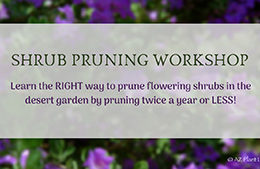Have you ever noticed circular areas missing from your leaves? If so, you aren’t alone. The other day I noticed several of my plants with neat semi-circular sections missing. But, was I worried? Nope, and I’ll tell you why in my latest garden video.
The Enigmatic Damage to Leaves
A Puzzling Leaf Discovery
Noelle: Hey there, fellow garden enthusiasts! Today, we’re diving into a bit of a mystery. As I was strolling through my garden, I couldn’t help but notice something quite peculiar – several of my plant leaves had neat, semi-circular sections missing. Now, I know this might raise some alarms for many gardeners, but fear not, for I’m here to share some insights and reassure you that it’s not as ominous as it might seem.
Noelle: First things first, let’s take a closer look at these mysterious leaf patterns. You can see here on this rosebush, there’s a semi-circular chunk missing from one of the leaves. And over here on this hibiscus, another one. So, what’s going on? Is it some nefarious garden pest?
The Twist in the Tale of Leaves
Noelle: Well, here’s the twist – it’s not a pest at all! In fact, this leaf damage is quite natural and not something to fret over.
You see, the culprits behind these neat, semi-circular holes are none other than the remarkable leafcutter bees. Leafcutter bees are a type of solitary bee, and they are truly fantastic pollinators. What might appear as leaf vandalism is, in fact, a vital part of their unique nesting process.
Leafcutter bees utilize these semi-circular leaf sections to construct their nests. If you take a closer look, you might even spot some of these leaf sections tucked away in the nooks and crannies of your garden.

The Precision of Leafcutter Bees
Meticulous Craftsmen
Noelle: Leafcutter bees are known for their precision. They cut these perfect curves from the edges of leaves, and they’re surprisingly meticulous about it. The remarkable thing is that these bees aren’t interested in damaging your plants; they’re simply striving to build a safe and cozy space for their offspring.
Beneficial Garden Partners
Noelle: Now, here’s the best part – these bees are great for your garden! As they visit your plants to collect nectar and pollen, they’re inadvertently pollinating your flowers. This pollination process is an essential aspect of maintaining a healthy garden ecosystem.
Embrace the Leaf Patterns
A New Perspective
Noelle: So, the next time you come across these mysterious leaf patterns, don’t panic. Instead, take a moment to appreciate the hard work of these industrious leafcutter bees and the positive impact they have on your garden.
Thanks for joining me on this little garden mystery journey. If you enjoyed learning about leafcutter bees and want to see more fascinating garden insights, don’t forget to hit that subscribe button and give this video a thumbs up. Happy gardening!
In summary, the seemingly mysterious leaf damage caused by leafcutter bees is nothing to worry about. These industrious pollinators are beneficial to your garden, and their leaf-cutting activities are just part of their nesting process. So, next time you spot these neat, semi-circular holes in your leaves, remember to appreciate the role of leafcutter bees in your garden’s ecosystem. Happy gardening!
Has this happened in your garden? What plants were affected?












